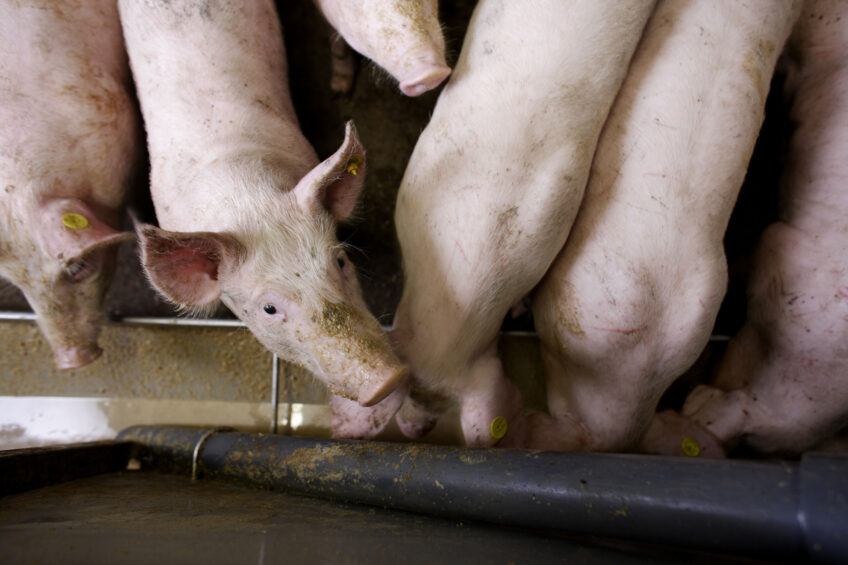What is the impact of vitamin supplementation on a pig’s immune function?

Various environmental, physiological, and social stressors decrease the immune system function and increase disease susceptibility in pigs. Nutritional strategies, such as adding vitamins to a pig’s diet promotes immune cell’s function, modulates humoral immune response, modifies antibody production, and affects the immune system efficiency. This article will discuss the impact of dietary inclusion of vitamins on the immune function in pigs.
Fat-soluble vs. water-soluble vitamins
Vitamins are divided into fat-soluble vitamins including vitamins A, D, E and K, and water-soluble vitamins including vitamins C and the B group. Fat-soluble vitamins are digested and absorbed in the intestine, then they are associated with dietary fats, transported through the lymphatic system into the circulation, and finally they are stored in the liver and adipose tissue. Water-soluble vitamins dissolve in water upon entering the body; thus, their excess amounts cannot be stored for later use.
Vitamin A
Vitamin A is one of the most important vitamins from a nutritional point of view. Due to the lack of vitamin A in plant-based feedstuff, synthetic retinyl acetate is supplemented to pig diet to fulfil the dietary requirements of vitamin A. Vitamin A maintains the functionality of the gut and promotes mucin secretion. In addition, it affects both cellular and humoral immune responses by increasing IgA production. Dietary supplementation of vitamin A improves immune response after immunization with virulent rotavirus in in gestating sows and reduces viral shedding and diarrhoea severity in piglets.
Vitamin D
Vitamin D maintains bone health and regulates both innate and adaptive immune responses by increasing immunoglobulin production. In addition, vitamin D regulates gut permeability, limits cell death in the gut tract by increasing the production of anti-inflammatory peptides. A higher dosage of vitamin D increases villus height and crypt depth and decreases the severity and duration of post-weaning diarrhoea.
Vitamin E
Vitamin E is a fat-soluble antioxidant molecule modulating immune system function. Vitamin E maintains gut membrane integrity and inhibits cell membrane damage. Vitamin E deficiency reduces both humoral and cellular immune responses. High-dose vitamin E supplementation shows anti-inflammatory effects and increases gut cell proliferation rate and integrity.
Vitamin K
Vitamin K contributes to blood coagulation and occurs in 2 forms of vitamins K1and K2 in the nature. In addition, vitamin K plays a role in bone metabolism and specific enzyme systems regulation. Furthermore, it is involved in immune and inflammatory responses mediated by T cells.
Vitamin B group
Gut microbiota is involved in the synthesis of a range of B vitamins such as biotin, vitamin B12, folates, niacin, pantothenic acid, vitamin B6, riboflavin and thiamine. Dietary supplementation with vitamin B6 downregulates inflammatory cytokines in post-weaning piglets. Supplementing vitamin B3 decreases the diarrhoea incidence of weaned piglets. Some of the vitamin B group act as co-factors for the enzymatic reactions involved in innate and adaptive immune responses.
Vitamin C
Vitamin C supports the cellular functions of the innate and adaptive immune system. In addition, it maintains the epithelial barrier against pathogens, modulates cytokine production, and lowers histamine levels. Furthermore, antioxidant activity of vitamin C protects important biomolecules from damage caused by toxins and pollutants. Vitamin C supplementation in transition sows increases piglet weight at birth and at weaning.
References available upon request.











